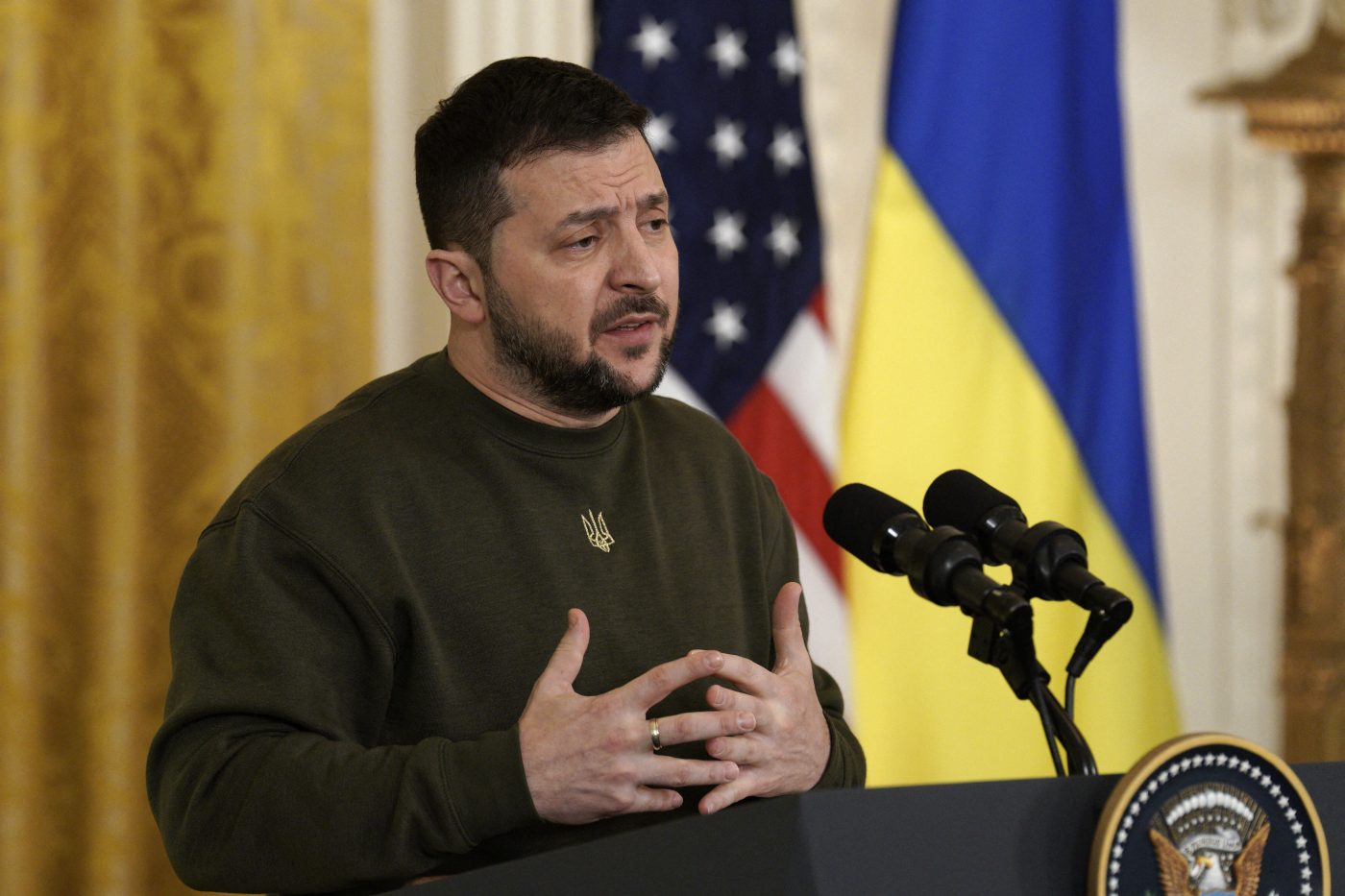The Ukrainian President’s US visit — including a long meeting at the White House and an address to a joint session of Congress — was by all accounts a success. President Biden announced a further $2bn in military assistance, including the delivery of long-awaited and much-needed Patriot missile batteries. Lawmakers across the aisle fêted their honored guest with a unanimity few other speakers could ever hope to engender. If Zelenskyy’s aim was to galvanize public commitment to Ukraine and the war effort, his mission in Washington looks to have been largely accomplished.
Ukraine’s battle for the hearts and minds of the Republican Party, however, is still a work in progress.
It’s true that opposition to support for Ukraine remains largely a fringe position within the Republican Party, most of whose Representatives and Senators rose to applaud Zelenskyy. The current ranking members of relevant House committees, who are set to become committee chairs in the new Congress, all support further assistance. And it was the US Congress that increased assistance for Ukraine to the current $44bn, going far beyond the President’s request of $37.7bn. Senate minority leader Mitch McConnell called the President’s initial request “insufficient,” saying that US support for Ukraine is “morally right…[and] a direct investment in cold, hard, American interests.” On December 22, the Senate passed the $1.7 trillion budget to fund the US government for 2023, including the $44bn in economic and other assistance for Ukraine. This is an important step in the right direction and will lock in US government support for Ukraine at a critical juncture in the war.
Still, come January, the razor-thin Republican majority in the House will mean that the loud voices on the fringes will likely have an outsized say over the GOP’s priorities. One particularly loud voice is that of Marjorie Taylor Greene, the Representative from Georgia, who tweeted ahead of Zelenskyy’s arrival that “the shadow president has to come to Congress and explain why he needs billions of American’s [sic] taxpayer dollars for the 51st state, Ukraine.” That sentiment has been echoed by a number of other members of Congress and amplified by the Fox News commentator Tucker Carlson, Alex Jones, and One America News, which called Biden’s aid package “America’s early Christmas gift to Ukraine”. While such positions have failed to find much traction among the broader public, and Fox News has adopted a broadly supportive stance, their views are nonetheless shaping the public debate on financial support to Ukraine.
The problem for Zelenskyy and Ukraine, then, is not that Republicans aren’t willing to support Ukraine. They are. Rather, it’s that Ukraine may become collateral damage in the internal party politics of the GOP and efforts to undermine the Biden administration ahead of the 2024 Presidential election. In addition, the incoming House majority is likely to spend much of its time opening new investigations into Hunter Biden, which may well slow down meaningful action on all policy fronts, including Ukraine.
Kevin McCarthy, the very likely Speaker of the House, will have the dual challenges of keeping the GOP caucus together with a slim majority, while at the same time maintaining alignment with Republican leadership in the Senate, which will remain in the minority, and supports increased assistance to Ukraine. The debate is likely to come down to what effective oversight looks like when it comes to US spending for Ukraine.
McCarthy will have a difficult road ahead, especially due to the Hastert Rule, which requires that Republican Speakers of the House only bring forward legislation that can be passed with exclusively Republican votes, making it functionally impossible to marginalize obstreperous members by reaching across the aisle for Democratic votes. If a handful of Republicans rebel, McCarthy and his leadership team could face a difficult choice: sacrifice party unity in the name of supporting Ukraine, or sacrifice Ukraine in the name of party unity.
By delivering the Bakhmut battle flag to Congress, Zelenskyy reminded Washington in general — and McCarthy in particular — of what is at stake.
“This flag is a symbol of our victory in this war,” Zelenskyy said. “We stand, we fight and we will win because we are united — Ukraine, America, and the entire free world.”
That is true now. Whether it will be true in 2023 depends in no small measure on the ability of McCarthy to exercise genuine leadership.
Sam Greene is Director for Democratic Resilience at the Center for European Policy Analysis (CEPA). He is also a Professor of Russian Politics at King’s College London. Before joining CEPA, he founded and directed the King’s Russia Institute.
Europe’s Edge is CEPA’s online journal covering critical topics on the foreign policy docket across Europe and North America. All opinions are those of the author and do not necessarily represent the position or views of the institutions they represent or the Center for European Policy Analysis.





